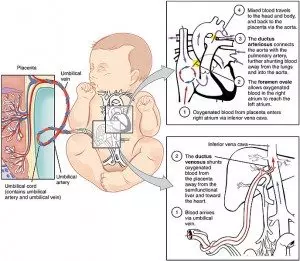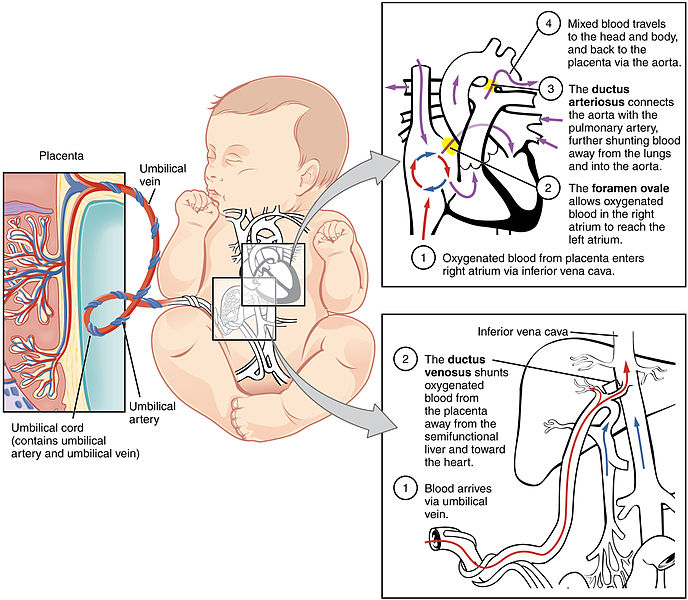By Cheri Fields
Six times I’ve gotten to see the brilliance of a tiny baby entering the outside world… really the brilliance of their Creator and Designer. Every person you meet, even you yourself, have accomplished something so complicated it takes a lot of scientific knowledge to even understand. What was this amazing feat?
You started to breathe
Think about it. Before you were born, you floated happily in a hot water bottle. You were never cold (this will be important later), you were never hungry, and there was no air to breathe. Everything you needed came through the supply line in the middle of your tummy connected to your mom’s body. Even the oxygen you needed.
But when you study the human body, you learn all your blood flows through the lungs to drop off carbon dioxide and pick up fresh oxygen supplies. If your growing baby-lungs had that much blood flowing through, it would just get in the way. Your brain is what needs the most help, not the lungs. So, before you were born only about 10% of your blood visited the lungs to keep them happy. How?
Special blood vessels
As a baby you had a blood vessel going right to the supply line, the umbilical cord. Then most of the blood visits the liver before going to the heart. Just look at a drawing of the way the blood flows through you inside your mom. Pretty complicated!
•Some blood takes a short cut around the liver to go to the heart.
•In a couple places, blood with lots of oxygen mixes with blood that’s given away most of its oxygen and sent back out to the body
•There’s a special hole (called the Foramen ovale) in the middle of the heart to let blood from one side through to the other

You can do more studying on this system for yourself on these sites:
The most detailed is on CreationWiki. For some reason we don’t mind admitting how complex the system is and how quickly it must change at birth!
WebMd has the best drawing of the blood vessels in color
How we switch from “breathing” through our belly button to breathing with our lungs
When you come out of your mom’s tummy, you only have a tiny amount of time to switch from never having used your lungs to using them all the time. How do we do it?
For weeks before we’re born, the lungs have been practicing moving in and out to get ready for the big day. They’ve had a little special fluid in the spaces soon to be full of air. In this wet stuff is something called a “surfactant”, a little like dish soap to make the fluid non-stick. Without help, a baby born too early won’t be able to pull his lungs open because this surfactant isn’t there yet.
Remember how the womb we grow in is warm and wet? When we first come out, we aren’t dressed and we’re soaking wet. All of a sudden– we’re cold! Our body was designed to react to this by taking a great big breath. It usually doesn’t take us long to tell the whole world how awful this new place is, and where’s our mommy?
High Pressure- Low Pressure
As our lungs fill for the first time, something amazing happens in our blood system. Squashed lungs push hard on any blood trying to squeeze through them, but lungs full of air aren’t nearly as much work. This means blood suddenly finds it way easier to flow into the lungs.
This next bit is the coolest of all!
When the blood starts flowing into the lungs, it pushes the blood the other way through the heart. That special hole to help blood go around the lungs has two flaps that immediately get pushed together- closing the opening. Soon, cells on both sides begin to grow together sealing off the old opening for the rest of our lives!
And, what happens to the blood vessels that used to flow to our belly button and around the liver and lungs? After a while, they turn into ligaments holding our body together!
Which seems more logical to you: random chance making these systems come together with such great timing, or our genius Creator God?
In whose hand is the soul of every living thing, and the breath of all mankind. Job 12:10
You can read more about how our bodies switch from living inside our mothers to being outside here: ICR: Made in His Image: Baby’s First Breath
And here: National Library of Medicine: Changes in the newborn at birth







